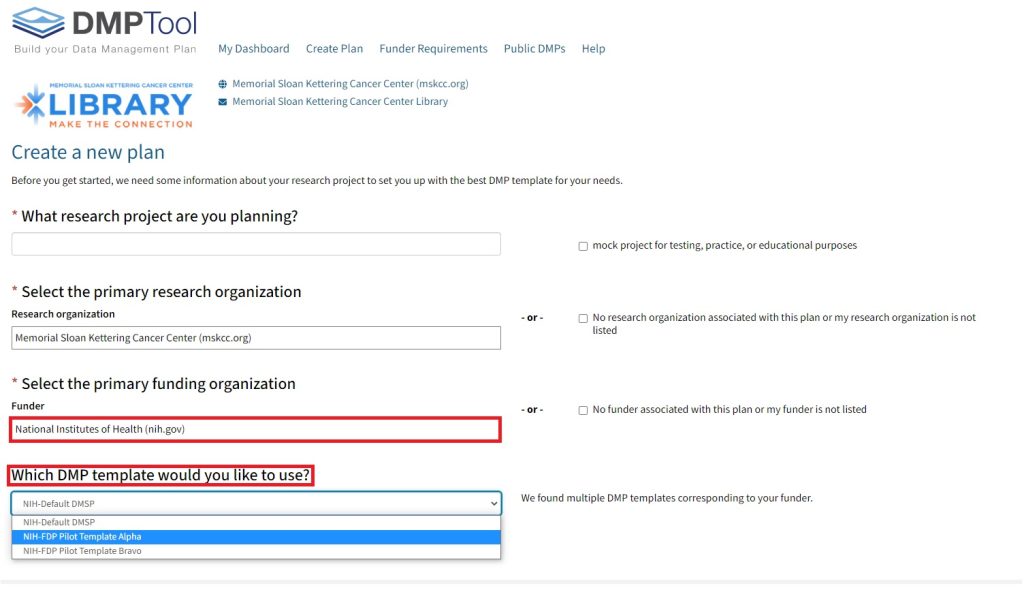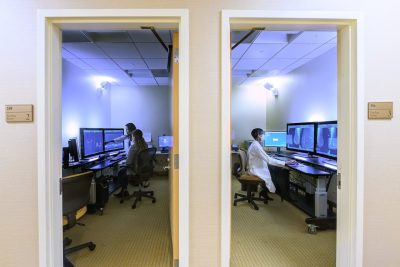The MSK Library will be closed on Tuesday, July 4 in observance of the Independence Day holiday. We will be open on Monday, July 3 with our regular hours, 8:30AM-7:00PM.
We wish the MSK community a safe and restful holiday weekend.
Posts are written by library staff and reflect their personal opinions not necessarily those of MSK.
Towards the end of January 2023, NIH’s new Data Management and Sharing Policy (DMSP) went into effect. Among the key provisions for this policy was the requirement for including a Data Management Plan (DMP) for most types of grant applications, regardless of the award request. A DMP asks researchers to identify the types of data they expect to produce from their project, where that data will be stored, and what provisions will be made for sharing the data. You can read more about the NIH DMSP here.
Preparation and work from the NIH, the MSK Library, other institutional libraries, and research administrators have gone into creating resources in support of this policy roll-out, including an NIH Data Sharing website, templates in the DMPTool, and a resource guide at MSK. Those vested in supporting NIH-funded researchers and the policy will continue to enhance workflows and provide guidance to lower the administrative burden of creating a successful DMP.
The Federal Demonstration Partnership Template Pilot program brought together government and institutional partners to “test the effectiveness and usability of two DMSP templates developed in collaboration with representatives from participating ICs [NIH Institutes and Centers]”. The goal of this program is to:
The two templates have been dubbed Alpha and Bravo. Alpha is a PDF aimed at limiting free form entry while Bravo is a word document containing detailed prompts.
These templates are now available in the DMPTool or you can download them from the FDP website.

If you have questions about how to create a DMP, or would like to request a consultation about the new policy, please contact Anthony Dellureficio, Associate Librarian, Data Management.
An observational cohort study led by Dr. Carolyn Taylor from the University of Oxford in the U.K. showed that mortality rates for women diagnosed with early breast cancer in England decreased from a 5-year mortality risk of 14% in the 1990s to 5% in 2010-2015.

The researchers analyzed data from 512,447 women. The study included data from the England National Cancer Registration and Analysis Service between January 1993 and December 2015, with a follow-up until December 2020.
The study’s results might also help providers identify prognostic risk factors for women diagnosed with early breast cancer.
The study was published in BMJ.